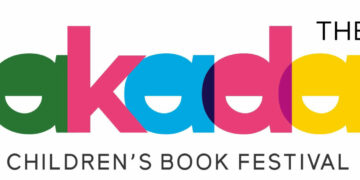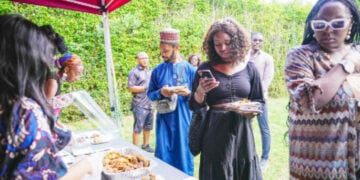The Economic and Trade Diplomat of the Embassy of Czech Republic Nigeria, Marie Iwuanyanwu, and the artistic director of the Jos Repertory Theatre (JRT), Dr Patrick Jude-Oteh have acknowledged the power of the arts in transmitting messages that transforms minds.
Both disclosed this at the Beautiful Camp Bootcamp, an affiliate project of the Czech Foreign Affairs Ministry’s Czech Republic Transition Development Programme, funded by Czech Aid.
When it comes to addressing matters of democracy, human rights and dignity in any society, activists and legal practitioners are the best candidates for the job. This time, the government of Czech Republic in collaboration with JRT, thought to deploy 15 artistes – consisting of young male and female, gifted in various genres of the art, and with specific platforms of influence – to educate the Nigerian public on the issues of democracy, human rights and human dignity, as a means of contributing to civil and societal change.
According to Iwuanyanwu, beyond discussions and seminars on human rights and freedom of the press, arts can through various channels, and via entertainment transmit messages addressing critical issues that are often very difficult to address.
Artistes, she further noted can utilize their position as influencers/ opinion leaders, both off-and-online to influence their communities/followers who better relate to their circumstances and needs.
“I am attracted by the idea that through theatre one can address some topics, even societal taboos, or trauma of people. I think it is interesting how art can use different forms to achieve this. Sometimes, it is about impacting minds, particularly in this age of infotainment and social media.
“However, one still has to engage people offline. I believe that a message can be better received through role-playing (dramatizing) an experience people have witnessed in the past because the message will be deeply internalized.
“For Czech Republic, human rights and transition, are part of the flagship of our foreign policy. Our society has a solid foundation built by past leaders as Vaslev Havel – who believe in the idea of humanity and human dignity as the foundation of a society. It is traced throughout our history. Through dialogue, discussion, and the value of human life, Czech Republic and Slovakia Republic were able to achieve one of the world’s most peaceful and bloodless secession.
“I believe artistes are also passionate about human rights and civil society development and can through this programme acquire new knowledge of how to work with their communities in the future.”
Inspired by the thought of how artistes can contribute to the ongoing debate of a new Nigeria, Oteh said the project leverages on the concept of collaboration amongst artistes from the six geo-political zones of Nigeria, to craft transformative messaging that are replicable in all nooks and corners.
“In Nigeria, we don’t have the kind of push-and-pull activity amongst creatives from the different zones. We are looking forward to inspiring projects, whereby these artistes can network across the different zones of Nigeria, irrespective of ethnicity, religious divide or political stance.
“We are trying to use art to look at a new Nigeria that is possible amongst a certain demographic. A demographic of young people who are into different things in their different lives. Already we have graphic designers from the north-central working with their colleagues from southwest, in the bootcamp.”
While the aim is for these seminal steps undertaken by the artistes to eventually culminate in a revolutionary change – mindset change, in particular, Oteh said the change sought is on-course.
“If you have a revolution where a youth in the southwest is collaborating with another in the northeast to get a better income, or a bigger platform that defies regions, that in itself is revolutionary. It means lives won’t be the same again. Their earning power will change, likewise their perspectives. You can call that a revolution, though a revolution that of personal or professional proportions,” said Oteh.
Kickstarted in June 2024, the Beautiful Camp began with a series of virtual sessions that familiarized the selected candidates with the concept of the Czech Transition Programme – which hinges around democracy, tolerance, human rights, human dignity and press freedom. They were further trained on importance and craft of Storytelling, the interconnection of the Economy and the Arts, as well as Press Freedom and Human Rights.
At the Bootcamp, candidates were trained on tools of storytelling like documentary-making via mobile phones, how to produce a radio drama, addressing Trauma among others.
Iwuanyanwu and Oteh are optimistic that the results of this pilot phase of the project can be expanded to international proportions.
“We will keep track of every one of them to know what’s happening in their regions or locations. It is either we start looking for funds for them to continue their collaborations until they are able to stand on their own, or provide a foreign input from the Czech Republic,” said Oteh.
Iwuanyanwu expressed hopes of connecting participants of the Beautiful Camp with the Nigerian alumni of the Cool Czechia, a programme that supports 20 young African leaders visit to Czech Republic familiarizing them with the democratic, human rights systems and world view of the country, with the opportunity of future collaboration.





